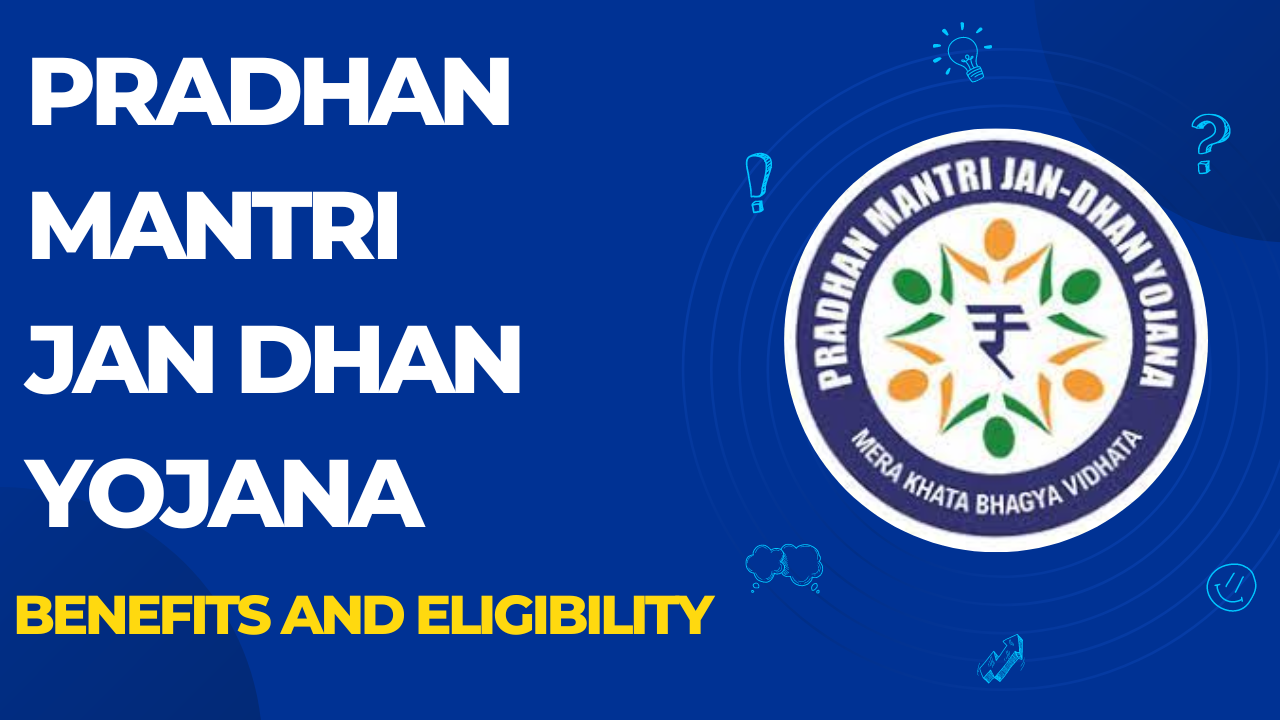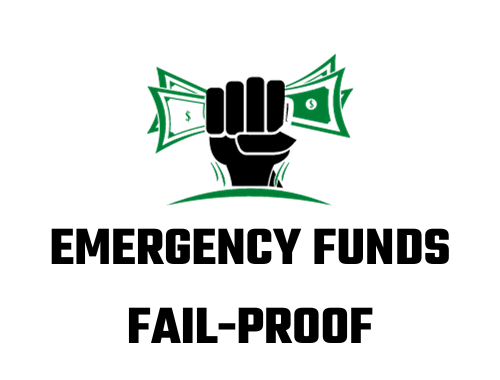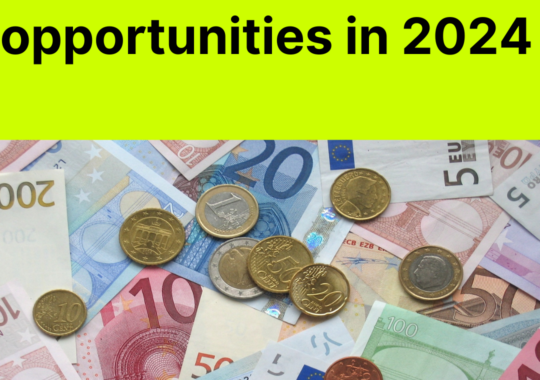What is the Pradhan Mantri Jan Dhan Yojana? The PMJDY is a financial inclusion program that was launched by the Indian Government in 2014 with the aim of ensuring that every household in the country has access to basic banking services. The goal of the program is to provide financial services like savings accounts, insurance coverage, and pension facilities to the unbanked and underserved population of India.
One of the key features of the PMJDY is the “zero balance savings account,” which means that people can open a savings account with no minimum balance requirement. This has made banking services accessible to millions of people who were previously excluded from the formal banking system. The program has also helped to increase the number of people with access to credit and insurance, allowing them to manage financial risks and build a better future for themselves and their families.
In addition to the financial services offered through the PMJDY, the program has also played a significant role in financial literacy and digitalization efforts in India. Through financial literacy campaigns and the use of technology, the PMJDY has helped to educate people about the importance of managing their finances and using digital financial services.

Overall, the Pradhan Mantri Jan Dhan Yojana has been a game-changer for economic empowerment of millions of people in India. By providing access to basic banking services and financial literacy, the PMJDY is helping to build a more inclusive and sustainable future for all Indians.
The Pradhan Mantri Jan Dhan Yojana (PMJDY) offers several key benefits to the Indian population:
- Increased access to financial services: One of the primary goals of the PMJDY is to provide access to basic banking services to the unbanked and underserved population of India. By offering “zero balance” savings accounts, the program has made it easier for people to open and use bank accounts, providing them with a secure place to save money and access financial services like credit and insurance.
- Improved financial literacy: The PMJDY has also played a significant role in financial literacy efforts in India. Through educational campaigns and the use of technology, the program has helped to educate people about the importance of managing their finances and using digital financial services.
- Increased access to credit: By having a bank account, people are able to access credit more easily, allowing them to invest in their businesses, homes, or education. This can help to increase economic activity and support economic growth in local communities.
- Improved financial security: The PMJDY provides access to a range of insurance products, including life insurance, accident insurance, and pension facilities, which can help people manage financial risks and build a more secure future for themselves and their families.
- Increased government financial support: The PMJDY also makes it easier for the government to transfer benefits and subsidies directly to the bank accounts of eligible individuals, reducing the risk of corruption and increasing the efficiency of government programs.
- Enhanced financial inclusion: By providing access to financial services to the unbanked population, the PMJDY is helping to promote financial inclusion and reduce inequality in India.
Eligibility criteria for the Pradhan Mantri Jan Dhan Yojana (PMJDY):
- Indian residency: To be eligible for the PMJDY, you must be a resident of India.
Age requirement: You must be 10 years of age or older to open a PMJDY account.
KYC (Know Your Customer) documents: To open a PMJDY account, you must provide proof of your identity and address. Acceptable KYC documents include Aadhaar card, Voter ID card, driving license, passport, and PAN card. - Income requirement: There is no income requirement to open a PMJDY account.
Previous banking experience: You do not need to have a prior banking history to open a PMJDY account. The program is designed to provide access to financial services to people who are unbanked or underserved. - Savings requirement: PMJDY accounts are “zero balance” accounts, which means that you do not need to maintain a minimum balance.
- Rural residency: The PMJDY is open to both urban and rural residents, but priority is given to rural residents for the purpose of financial inclusion.
Also read:
- Step-By-Step Guide for Beginners to Open a Savings Account
- Equity Linked Savings Schemes (ELSS): What is it and what are the Tax Benefits?
- 7 Simple Ways to Start Saving for a Bright Future
- Saving Account: Types, Interest rates, and eligibility criteria
FAQs
What documents are required to open a PMJDY account?
To open a PMJDY account, you need to provide proof of your identity and address, such as an Aadhaar card, Voter ID card, driving license, passport, or PAN card.
Is there a minimum balance requirement for PMJDY accounts?
No, PMJDY accounts are “zero balance” accounts, which means that you do not need to maintain a minimum balance.
Can a PMJDY account be opened in a rural area?
Yes, PMJDY accounts can be opened in both urban and rural areas. The program is designed to provide access to financial services to people in both urban and rural areas, but priority is given to rural residents.
Can a PMJDY account be used for online transactions?
Yes, PMJDY accounts are linked to RuPay debit cards, which can be used for online transactions and point-of-sale transactions.
What insurance benefits are available through the PMJDY?
PMJDY account holders are eligible for life insurance and accidental insurance cover of up to Rs. 2 lakh and Rs. 1 lakh, respectively.
What is the overdraft facility available under PMJDY?
PMJDY account holders who have satisfactorily operated their accounts for at least 6 months are eligible for an overdraft facility of up to Rs. 10,000.
How does the PMJDY promote financial literacy?
The PMJDY provides financial literacy training to account holders to help them understand the basics of banking, insurance, and other financial services. The program also provides training on the proper use of financial products and services, such as mobile banking and RuPay cards, to help account holders make the most of the services available to them.
Is the PMJDY a sustainable program?
Yes, the PMJDY is a sustainable program that is designed to provide long-term benefits to the people of India. By providing access to financial services, insurance products, and financial education, the PMJDY is helping to promote financial literacy, increase economic activity, and build a more secure future for millions of people in India.
Want to learn about other schemes?
- Atal Bihari Yojana and its benefits
- Pradhan mantri Suraksha Bima Yojana (PMSBY)
- Pradhan Mantri Jeevan Jyoti Bima Yojana
Conclusion
The Pradhan Mantri Jan Dhan Yojana (PMJDY) is a landmark financial inclusion program that has had a profound impact on the lives of millions of people in India. By providing access to basic banking services, insurance products, and financial education, the PMJDY has helped to promote financial literacy and economic growth in the country.
Since its launch in 2014, the PMJDY has opened over 400 million bank accounts, thus making it a spot among the largest financial inclusion programs in the world. The program has helped to provide a secure place for people to save their money, access credit, and manage financial risks. In addition, the PMJDY has made it easier for the government to transfer benefits and subsidies directly to the bank accounts of eligible individuals, reducing the risk of corruption and increasing the efficiency of government programs.
The PMJDY has also played a key role in promoting digital financial services in India. By using technology to reach remote and underserved communities, the program has helped to bring millions of people into the formal financial system for the first time. This has had a positive impact on the overall financial landscape of the country, helping to promote financial inclusion and reduce inequality.
In conclusion, the Pradhan Mantri Jan Dhan Yojana is a testament to the power of government-led initiatives to bring about positive change in the lives of ordinary people. By providing access to financial services, insurance products, and financial education, the PMJDY has helped to promote financial literacy, increase economic activity, and build a more secure future for millions of people in India.



